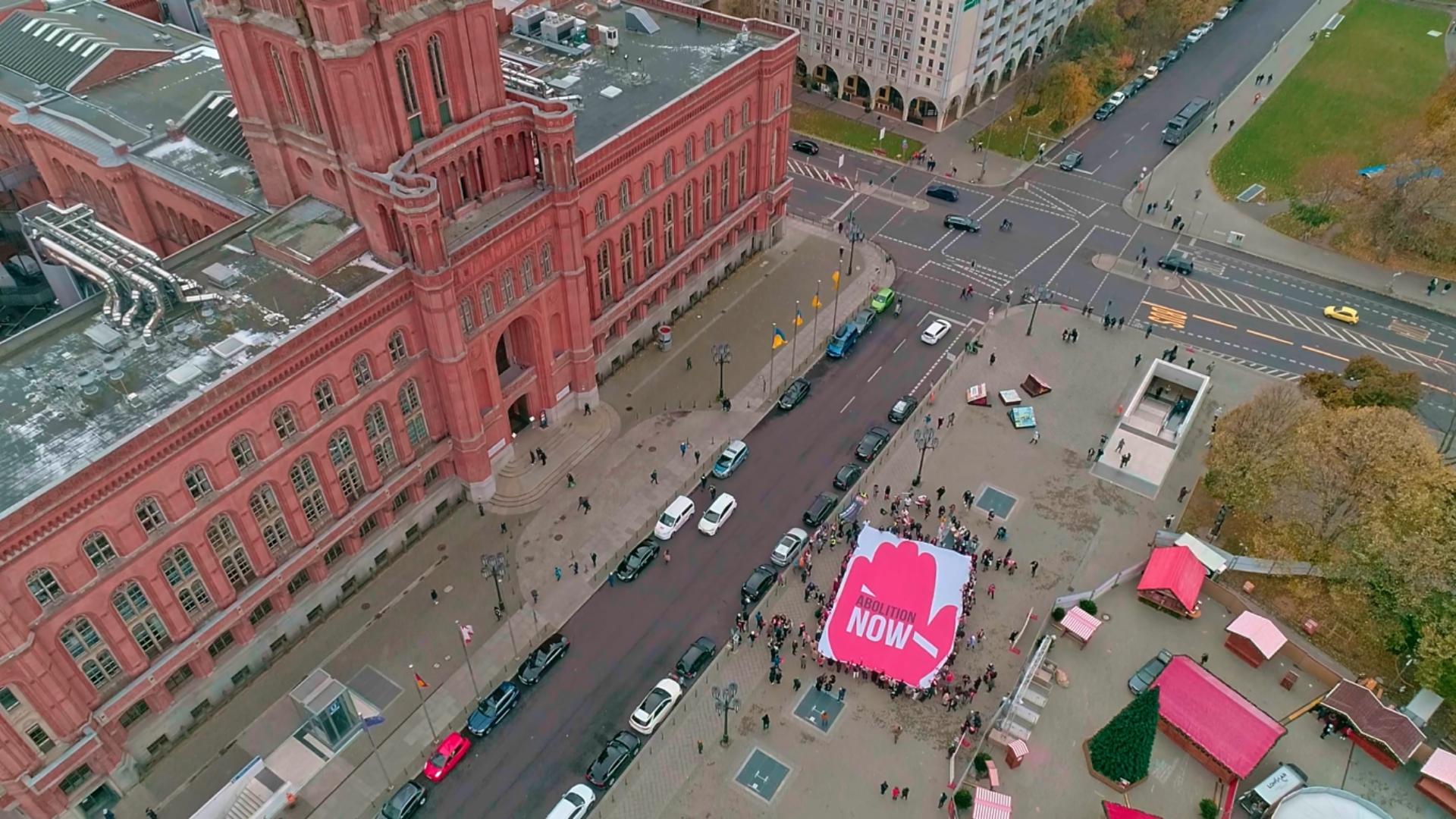Legal Representation award: RACOPEM (Cameroon) and Justice Project Pakistan
Réseau d’avocats camerounais contre la peine de mort – RACOPEM (Cameroonian lawyers network against the death penalty)
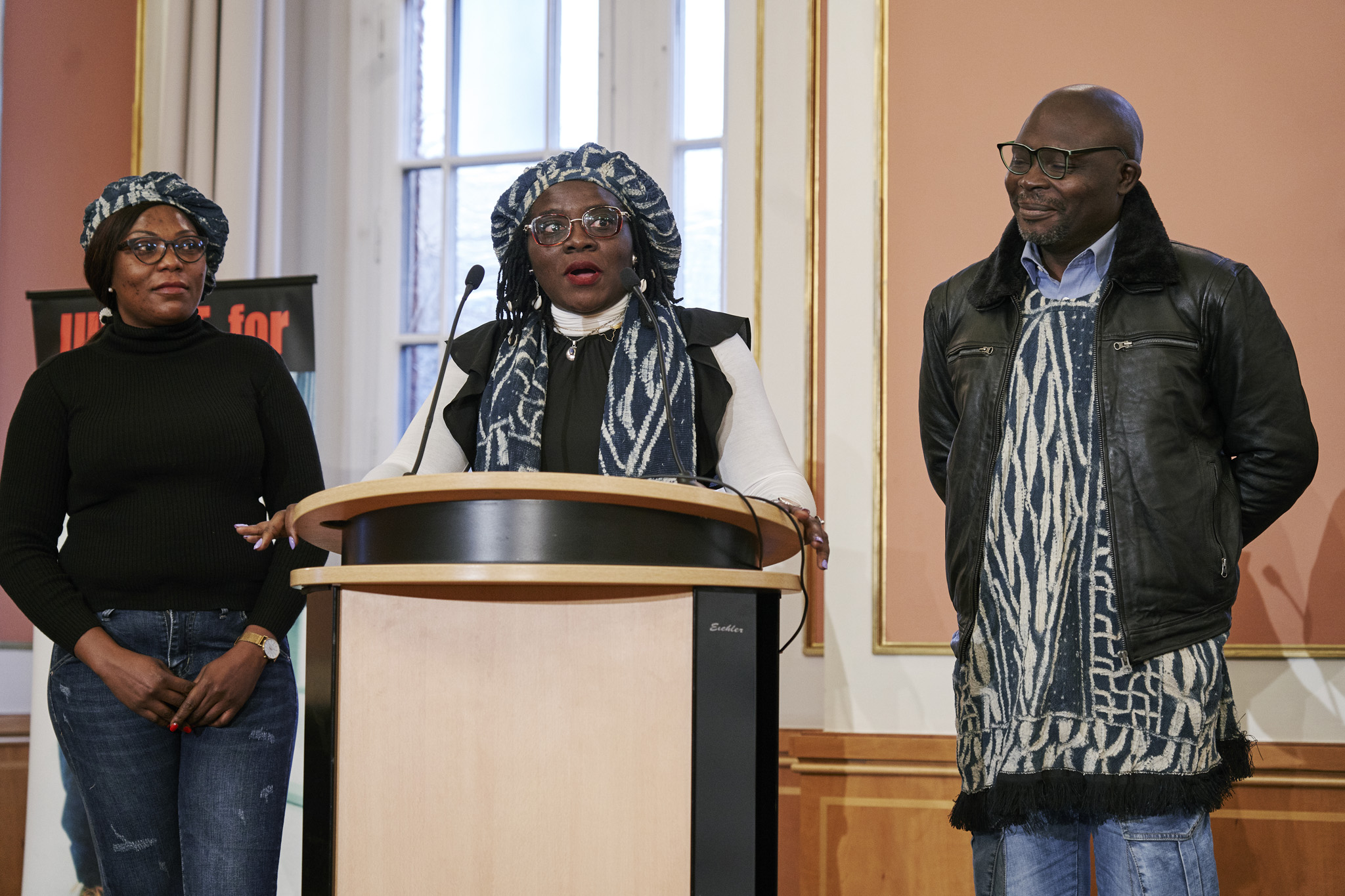
and Mr Nestor Toko, members of RACOPEM
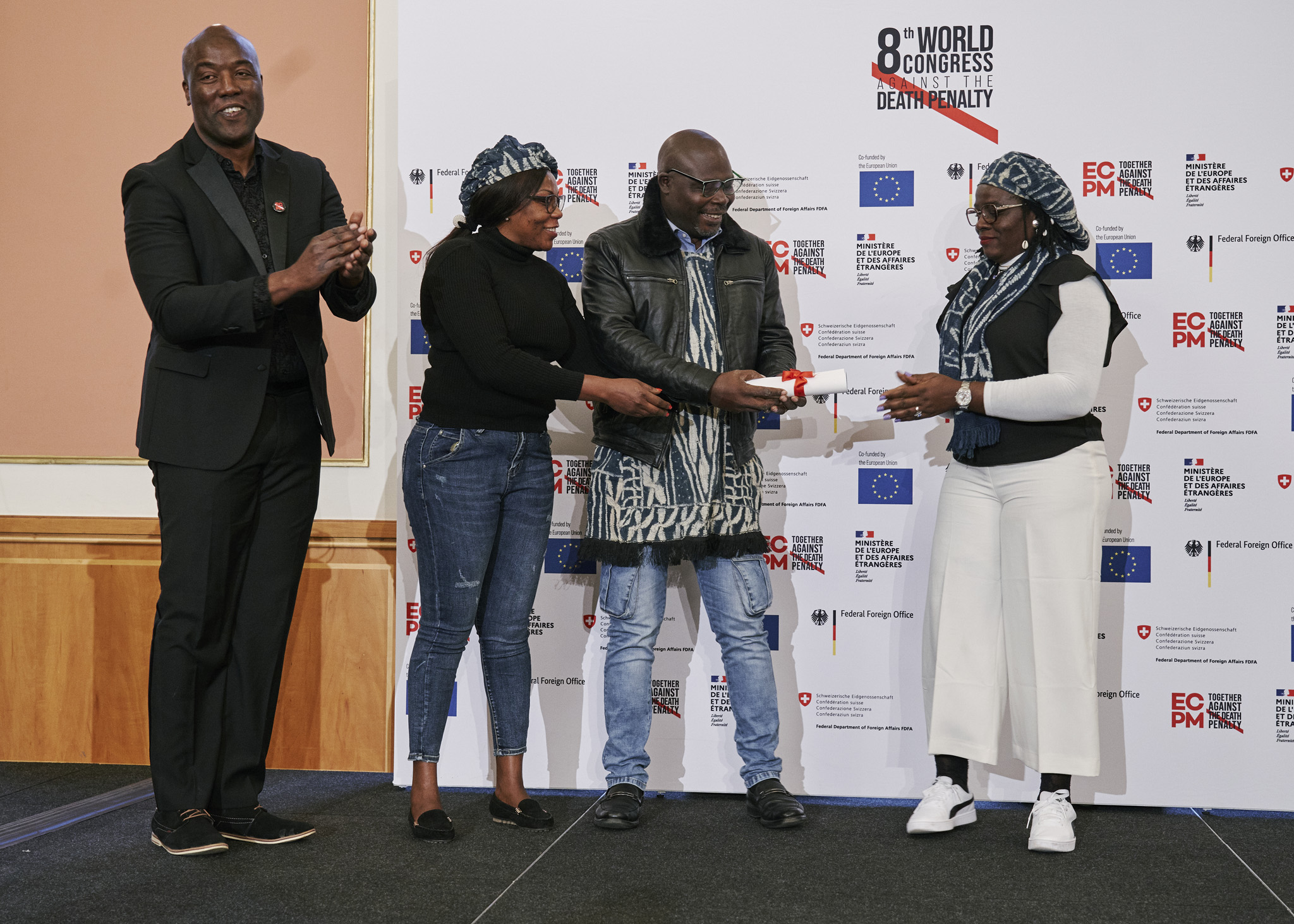
RACOPEM is the network of Cameroonian lawyers against the death penalty, created in 2015 at the initiative of Nestor Toko. RACOPEM members have represented clients in some of the most difficult and controversial capital cases in the country, including defendants sentenced to death under the anti-terrorism law adopted in 2014 amid Boko Haram attacks. Lawyers from RACOPEM have saved several people from death row, including juvenile girls accused of espionage and insurrection.
Pleading these cases can be dangerous for Cameroonian lawyers, who face direct pressure from security forces and authorities attempting to hinder their investigations. In a country where state repression is rife, RACOPEM members are not afraid to question the legislation in force, and to speak openly about the death penalty as a violation of human rights. At first, authorities refused to allow them to hold public meetings, because the subject matter was deemed too subversive, but RACOPEM has made spectacular progress in this regard. In just a few years, the issue has gone from being considered taboo, to a matter of public debate, with political and judicial stakeholders taking part in their activities.
RACOPEM’s legal work has contributed to a drastic reduction in the number of capital sentences imposed in Cameroon over the last few years (from 160+ in 2016 to 0 in 2017). As a result of their capacity to overcome a hostile environment, both in their advocacy work and in court proceedings, the members of the collective have made a crucial impact in opposing the death penalty in Cameroon.
Justice Project Pakistan (JPP)
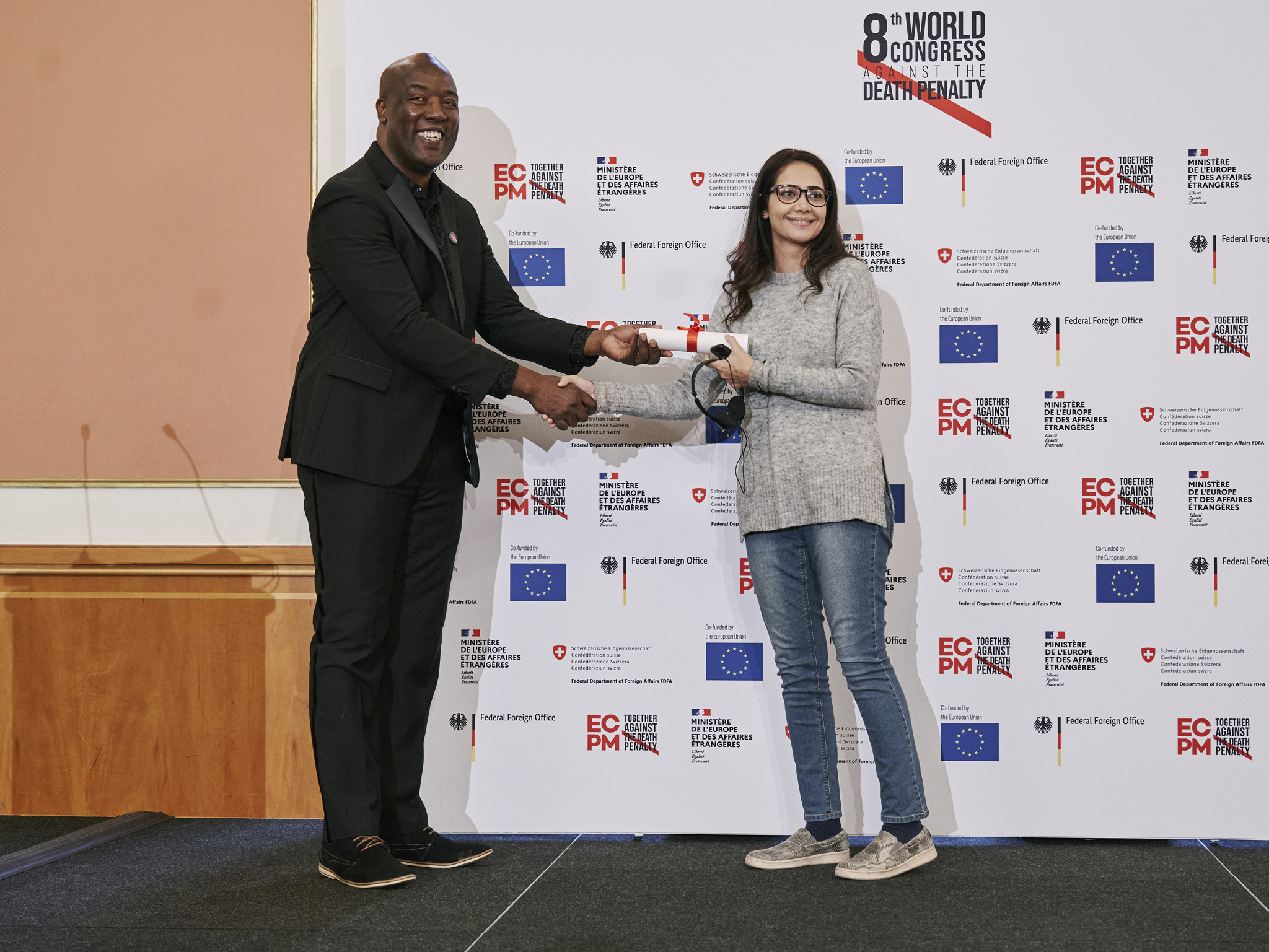
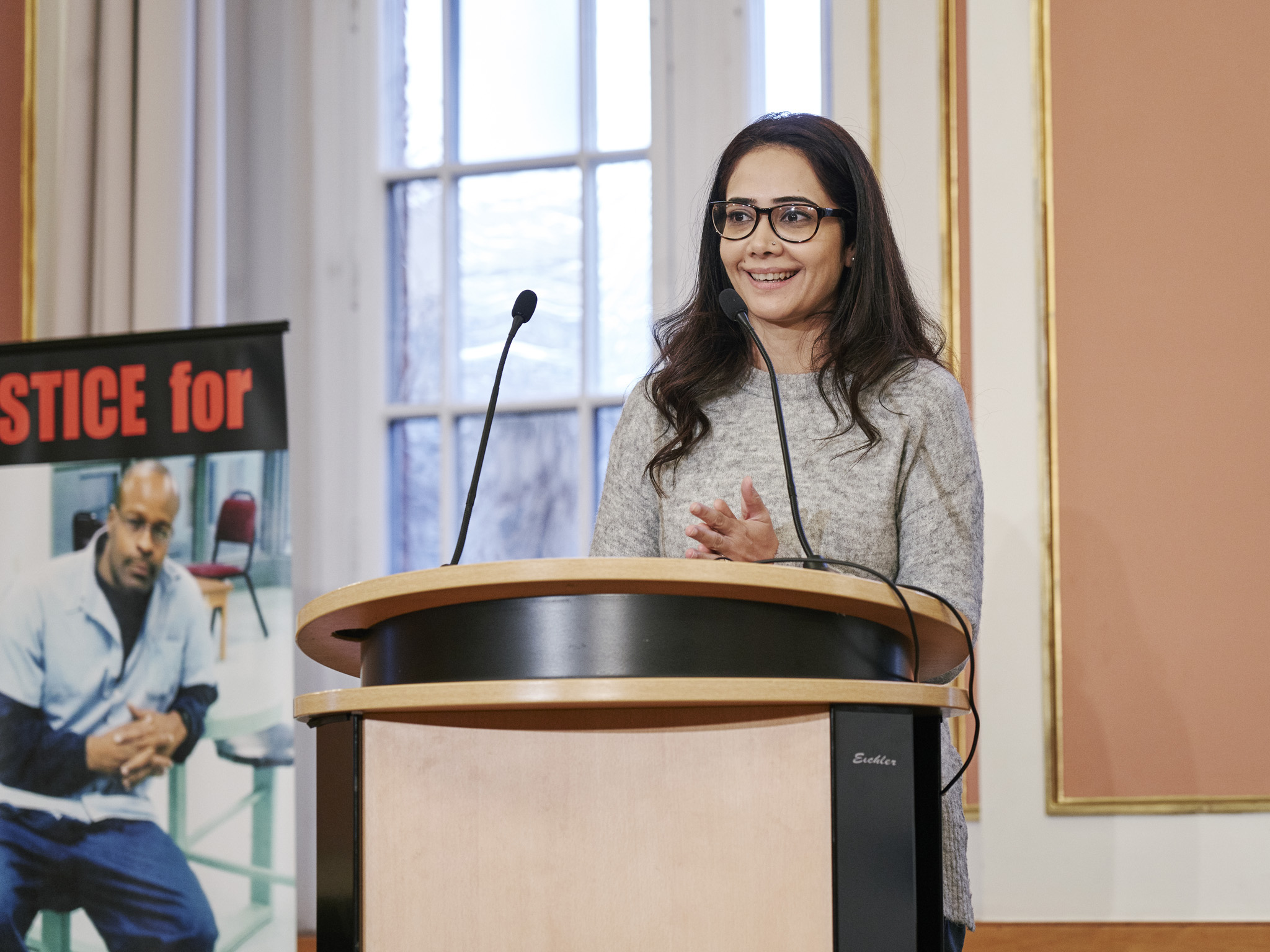
JPP is a legal action non-profit organisation created in 2009, which provides representation to the most vulnerable death row prisoners in Pakistan. JPP has established a clear strategy to fight the death penalty, through a two-pronged approach: first, to provide direct representation to defendants, and second, to set legal precedents, leveraging individual cases to bring about wider reforms in the Pakistani criminal justice system.
This approach has proven particularly successful in recent years, with JPP lawyers obtaining positive developments in the justice system on multiple fronts. In 2020, in a ground-breaking decision, the death sentence imposed on Muhammad Iqbal, a minor at the time of the offence, was commuted to life imprisonment, after he had spent 21 years on death row. This was followed by a similar ruling in 2021. These two outcomes have fundamentally influenced legal practice concerning juveniles and the death penalty. In 2021, JPP achieved a similar feat in the case of two prisoners suffering from mental illness, who were unable to comprehend the reason for their execution. The judgement now serves as a reference, for lawyers across the country, as well as internationally.
JPP is also involved in defending Pakistani prisoners abroad, bringing legal actions in other countries to obtain repatriation, which has led to the return of hundreds of prisoners from Sri Lanka and Saudi Arabia. Working in one of the most active retentionist countries in the recent times, JPP’s work has been instrumental in turning the tide: no executions have taken place in Pakistan since December 2019. JPP is now a force to be reckoned with in the fight against the death penalty and has demonstrated that legal representation can be a powerful tool for change.
Research award: Project 39A (India)
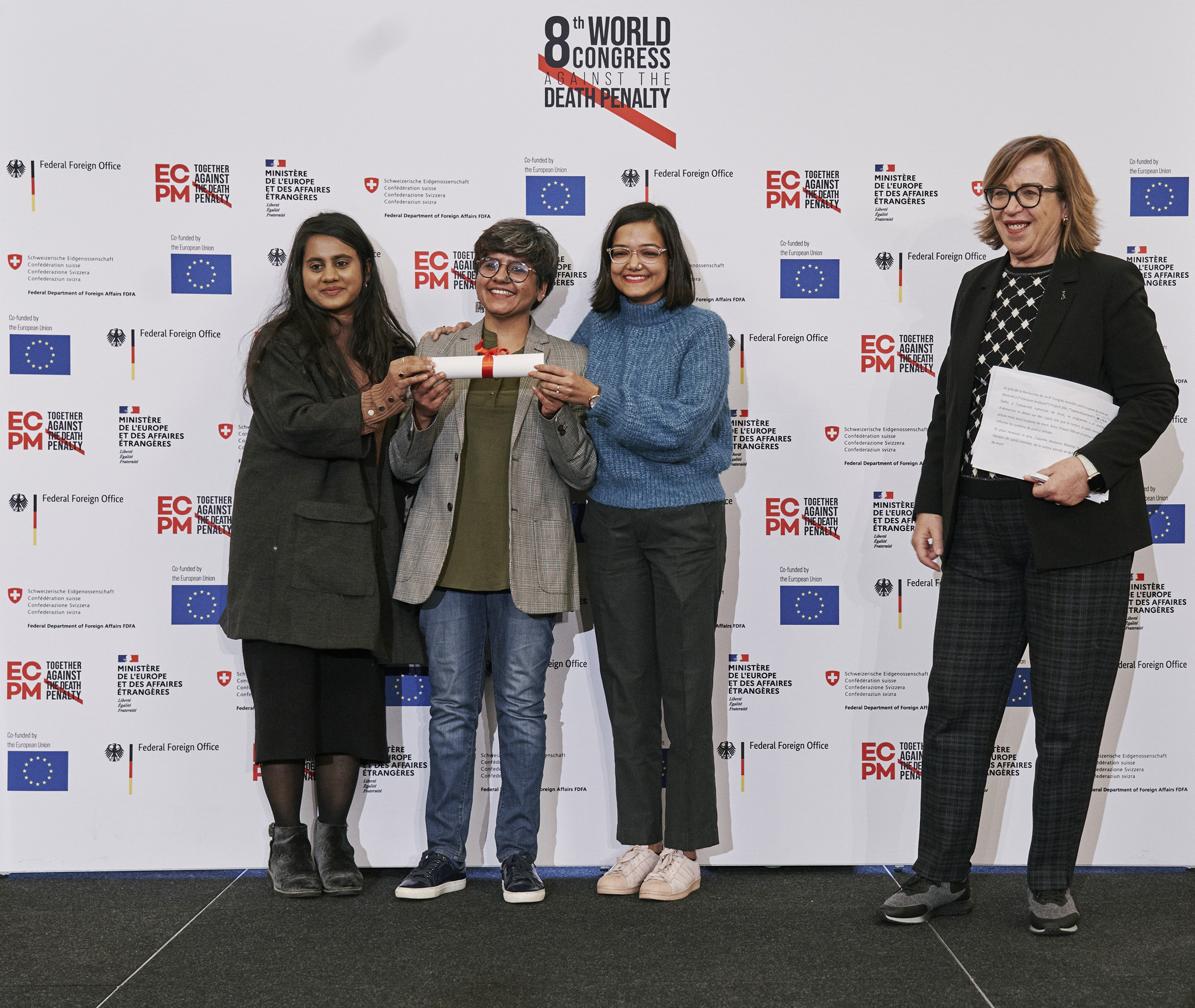
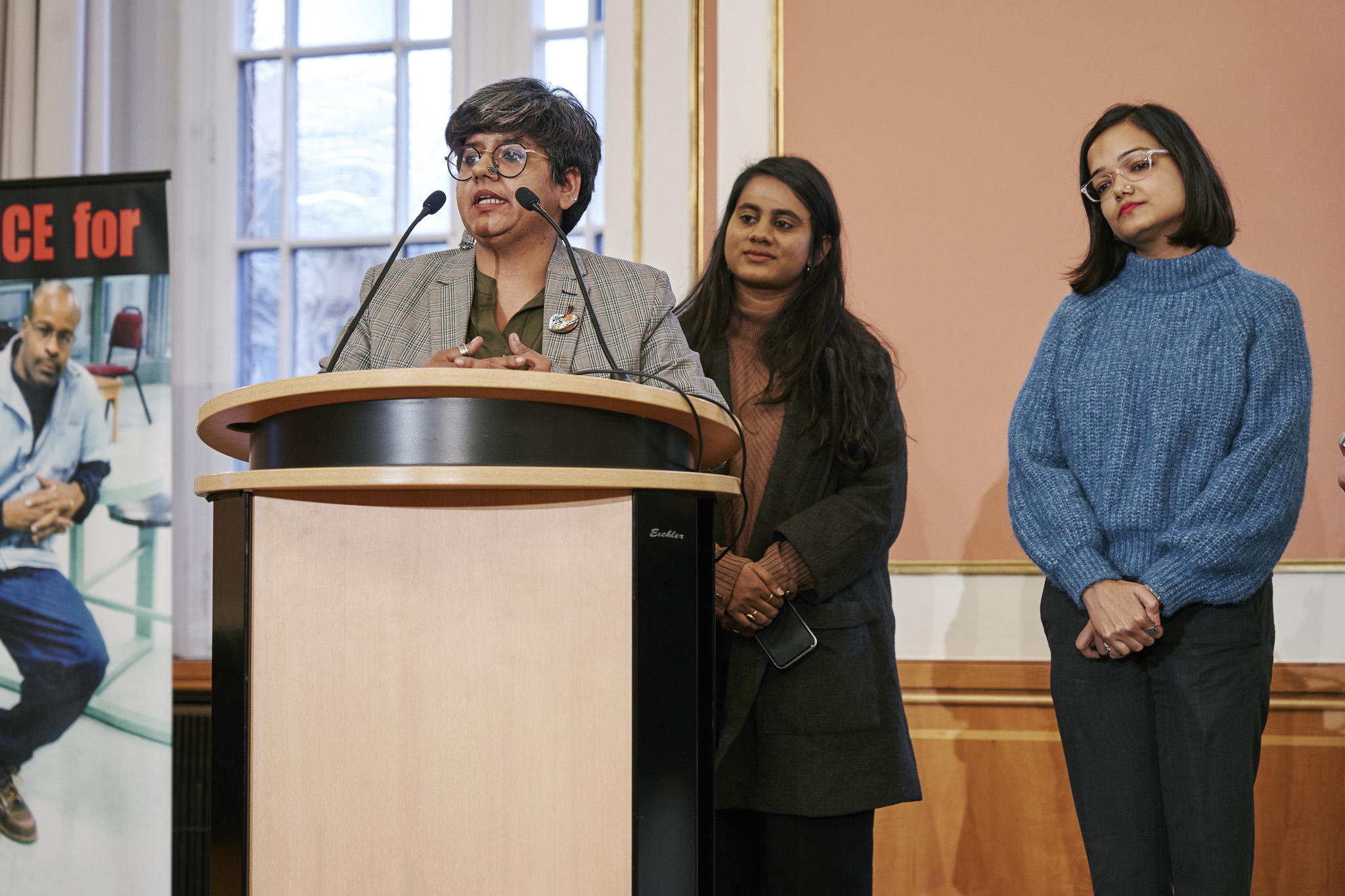
Project 39A is a criminal justice program established in Delhi at the National Law University. The organisation was named after Article 39-A of the Indian Constitution, which provides that the state has a duty to ensure that the legal system promotes justice, and that no citizen is denied access to justice due to economic or social barriers. Through empirical research publications on the criminal justice system, Project 39A aims to spark debate and reflection on topics such as torture, mental health in prisons, and the death penalty. The organisation considers that a knowledge-driven approach has many advantages over a purely prescriptive effort, providing an empirical basis for the evolution of Indian legislation.
In 2016, Project 39A released “Death Penalty India Report” the first overview of the death row population in the country. The study has since been renewed every year. After 5 years of research, the organisation published “Deathworthy: A mental health perspective of the death penalty”, the first study of its kind, highlighting a critical issue for the first time, in great detail. This publication directly influenced a Supreme Court ruling, which recognised the need for psychiatric assessment of prisoners. Another Project 39A publication led to a decision requiring mitigating evidence to be presented and considered, without exception, during examination of capital cases.
Despite its work not being supported by the government or public opinion, Project 39A manages to be a driving force in reforming the system. This work is particularly important given that India tends to operate as a reference for other retentionist countries in the region. The progress made under the impetus of Project 39A’s work could therefore prove to be of even greater value than the giant steps already taken towards stricter monitoring of the death penalty in India.
Advocacy award: ACAT-RCA
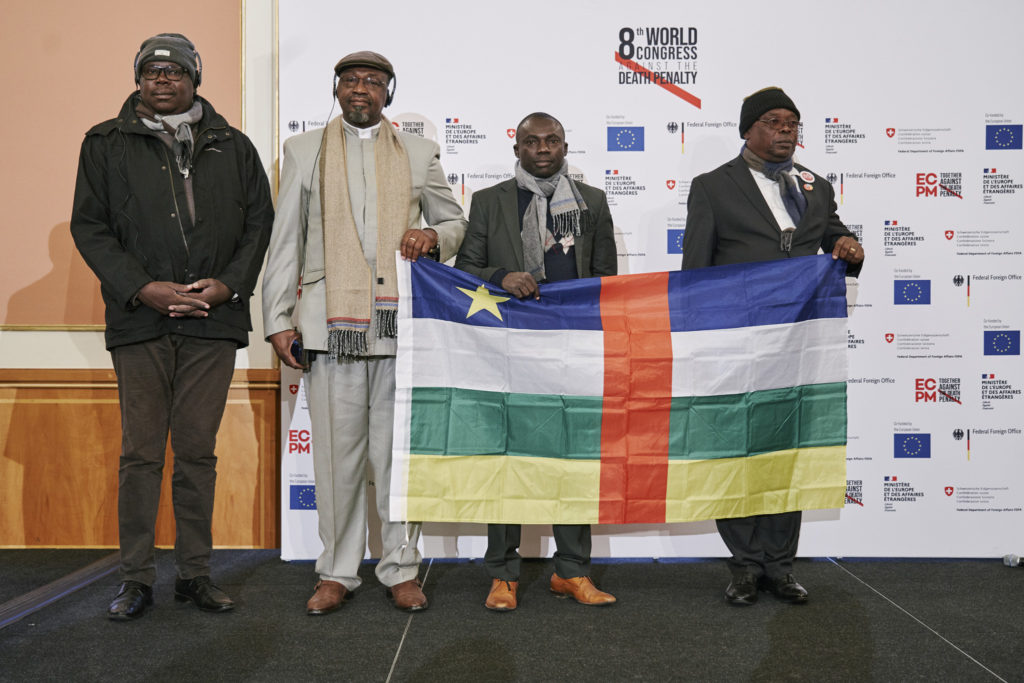
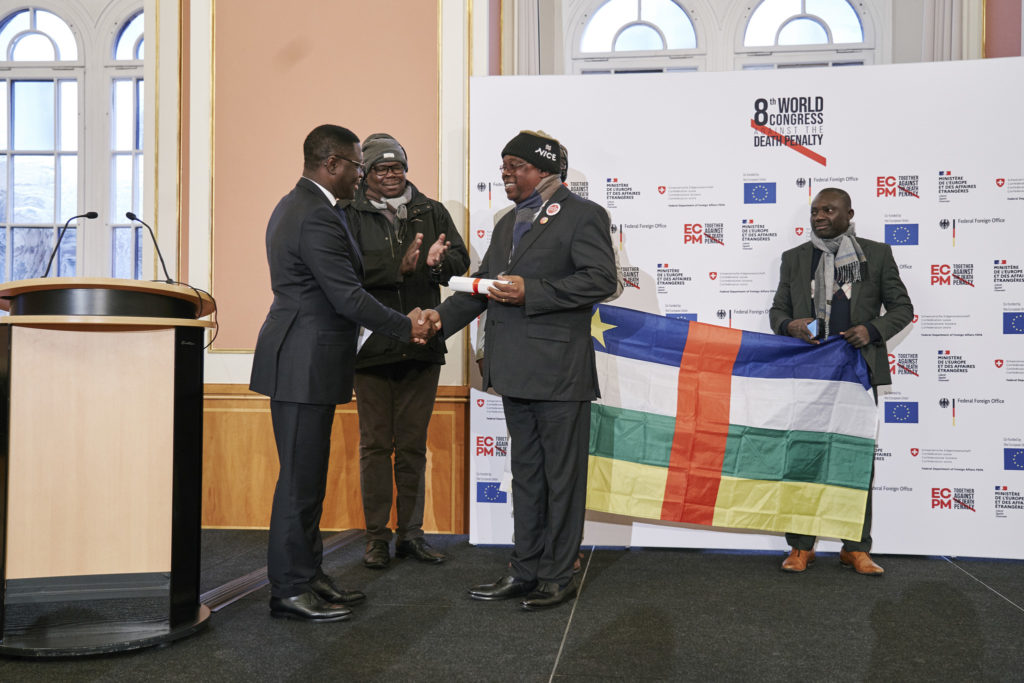
Photos Ⓒ Christophe Meireis
ACAT-RCA, created in 1991, is one of the 28 affiliated members of the ACAT network, united under the aegis of FIACAT (International Federation of ACAT). Its main objectives are the abolition of the death penalty, the prevention of torture and degrading treatment and the respect of human rights of detainees.
As the main civil society actor involved in the struggle for abolition in the CAR, ACAT-RCA undertook intense advocacy work, in collaboration with FIACAT and ECPM, which culminated in the adoption by the National Assembly of a law abolishing the death penalty on 27 May 2022.
Throughout the advocacy process, ACAT-RCA sought to involve as many actors as possible. For example, it organised meetings and roundtables with opinion makers, from academics to clerics, and carried out extensive work with parliamentarians.
ACAT-RCA’s approach is a powerful example of the importance of cooperation in the abolitionist struggle. By making the effort to federate other actors, ACAT-RCA planted the seeds that grew into vast opposition to the death penalty. It helped to make abolition a national concern, and a major political demand, which eventually succeeded.
This award aims to honour ACAT-RCA’s major contribution to the process that led to this historic achievement. It pays tribute to the work of the organisation in helping Central African Republic become the 110th abolitionist country worldwide, and the 24th in Africa, highlighting the role that NGOs can play in local campaigns against death penalty.
Innovation award: Justice for Keith Lamar, Albert Marquès and Keith Lamar (United States and Catalonia)
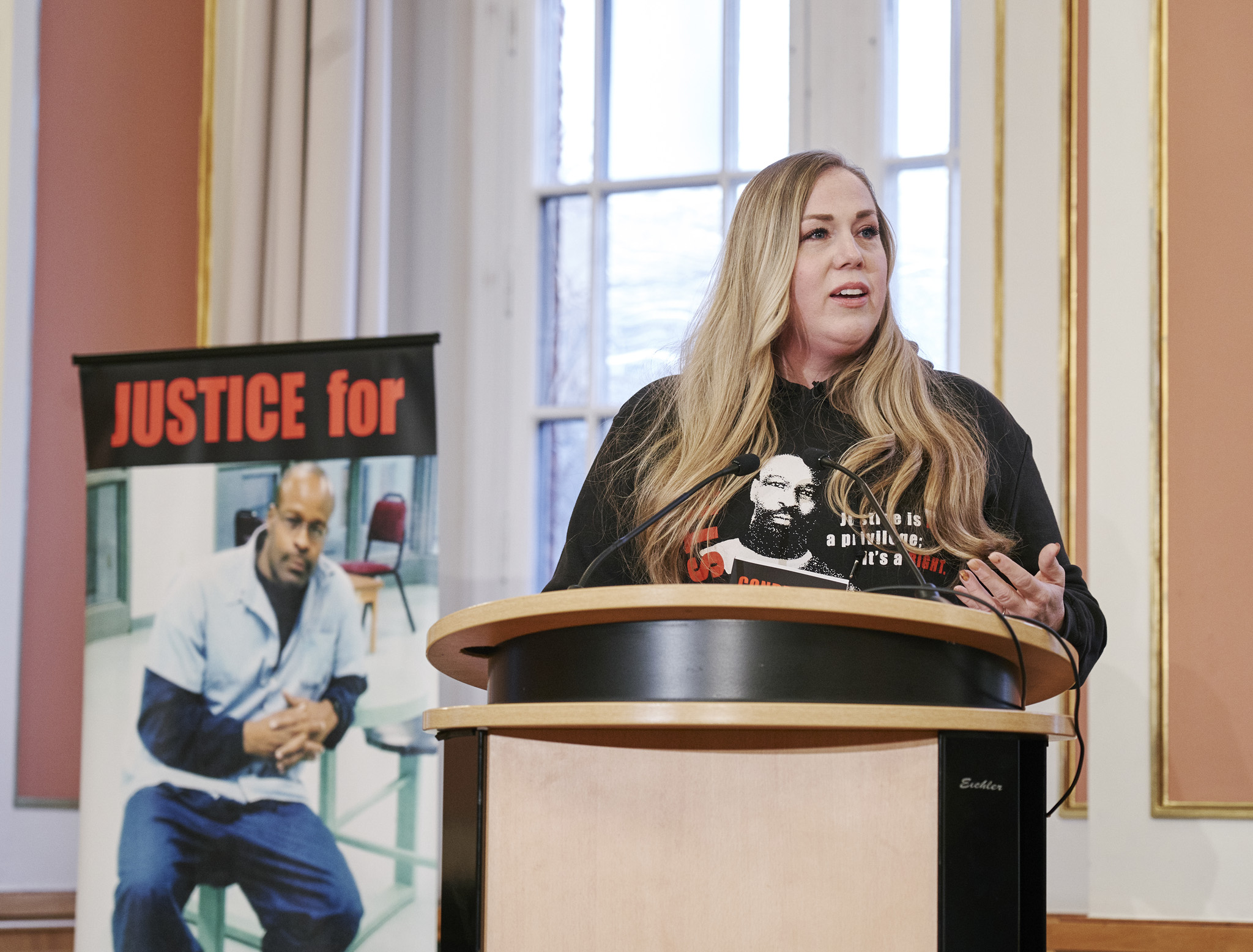
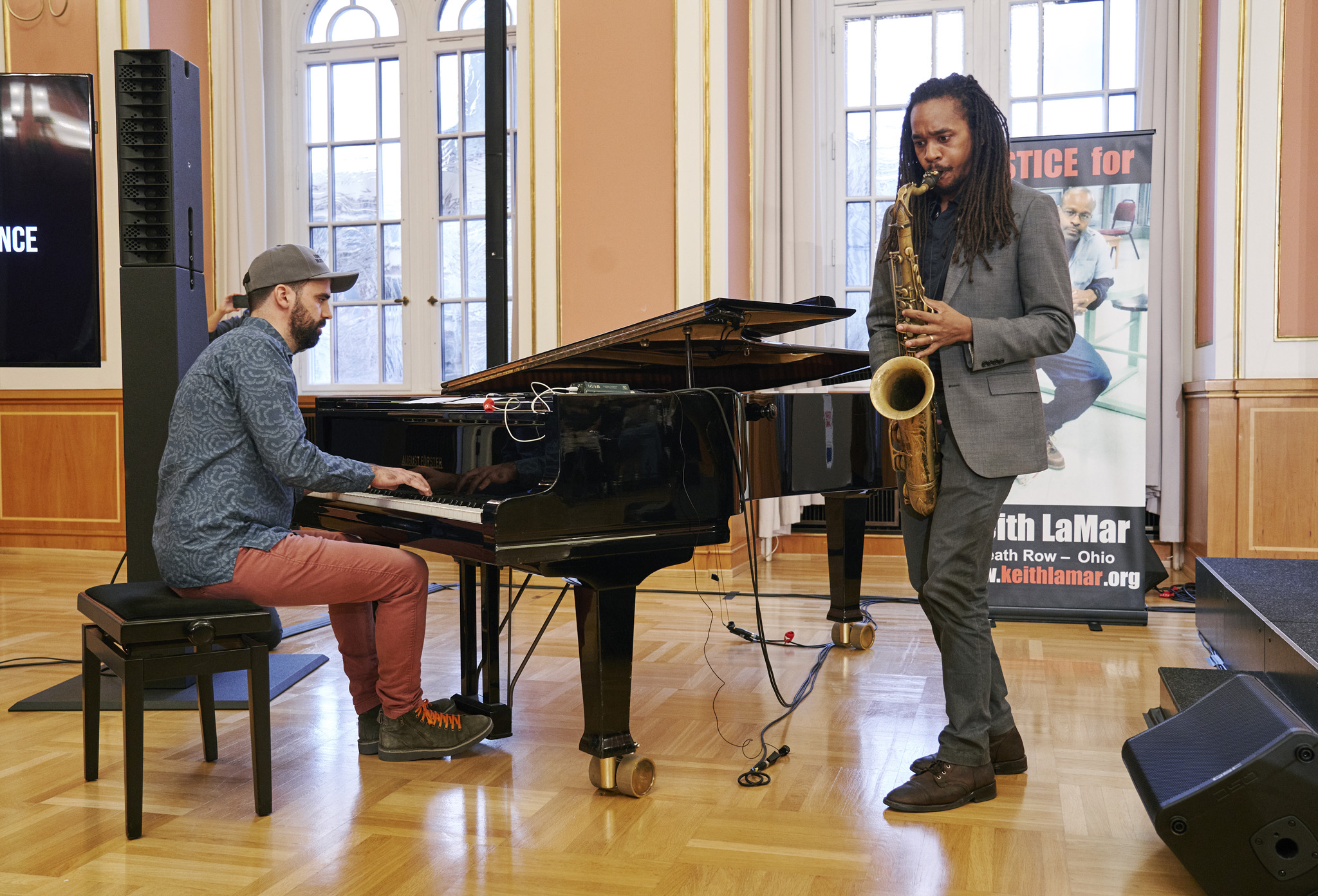
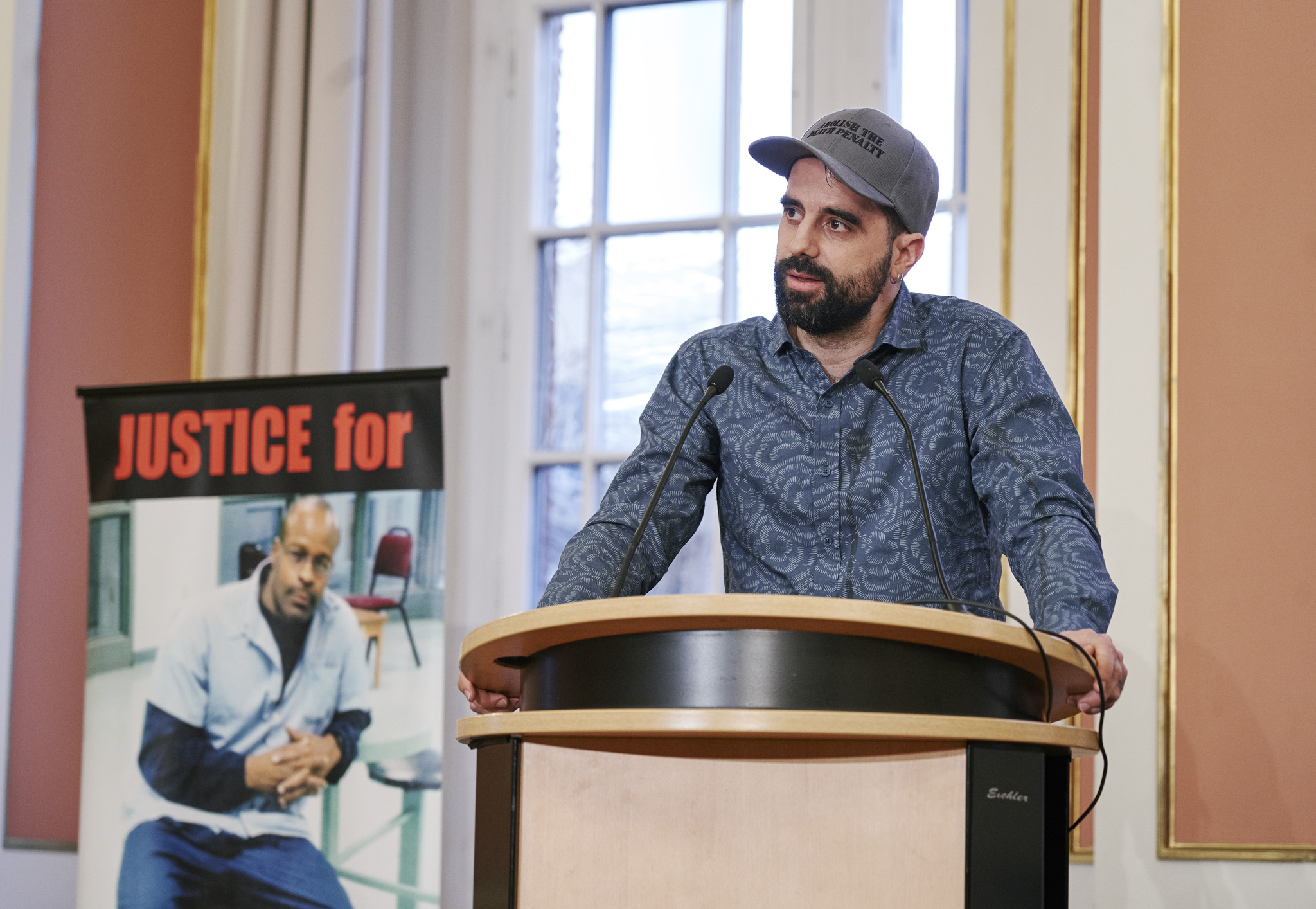
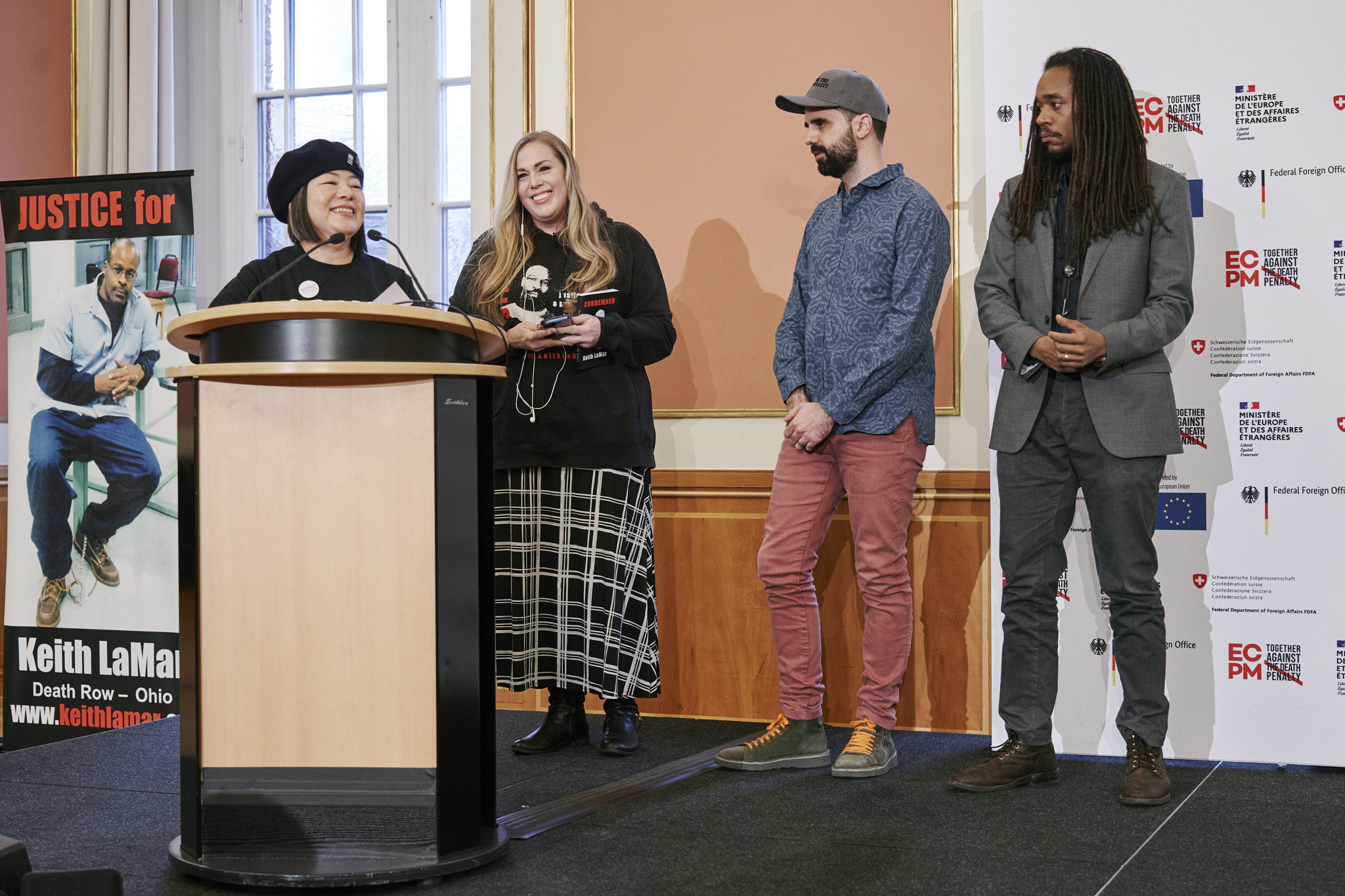
In 1993, at the age of 23, Keith LaMar was caught up in a violent riot in a facility where he was serving time, which resulted in ten deaths. Several prisoners accused him of orchestrating the riot, and, despite numerous witnesses presenting conflicting evidence, he was eventually sentenced to death for murder. He has been on death row ever since.
Keith has always maintained his innocence, pointing to the racial aspect of his situation, as he was convicted by an all-white jury. During his time in prison, he began to read and write regularly, which led to the publication of “Condemned” in 2014. Over the past decade, his campaign, Justice for Keith LaMar has been actively trying to help Keith tell his story.
Catalan jazz pianist Albert Marquès heard of his story in 2020, in a podcast featuring an interview with Keith. He immediately came up with the idea of organising a concert to raise awareness on Keith’s situation. Albert contacted Keith, and they bonded over their shared passion for jazz. Albert began to gather volunteer musicians around the project. The songs were to be chosen by Keith, who would also speak between songs via pre-recorded videos.
The concert took place at Grand Army Plaza with 25 musicians, and it inspired Albert to extend the experiment further, with the recording of a joint album featuring many jazz musicians around Keith’s voice. “Freedom First” was released in 2022. By setting Keith’s spoken word to jazz rhythms, Albert gave him a platform to express the many emotions and reflections born of his 30 years on death row, as well as the writing prowess he developed while he was in prison. Albert and Keith’s partnership is a testimony to the capacity of creativity and hope to resist imprisonment, and a shining example of symbiosis between a musical work and a political message, where the subversive and artistic aspects complement each other beautifully.
Robert Badinter Public Grand Prix: Ms Nasrin Sotoudeh (Iran)
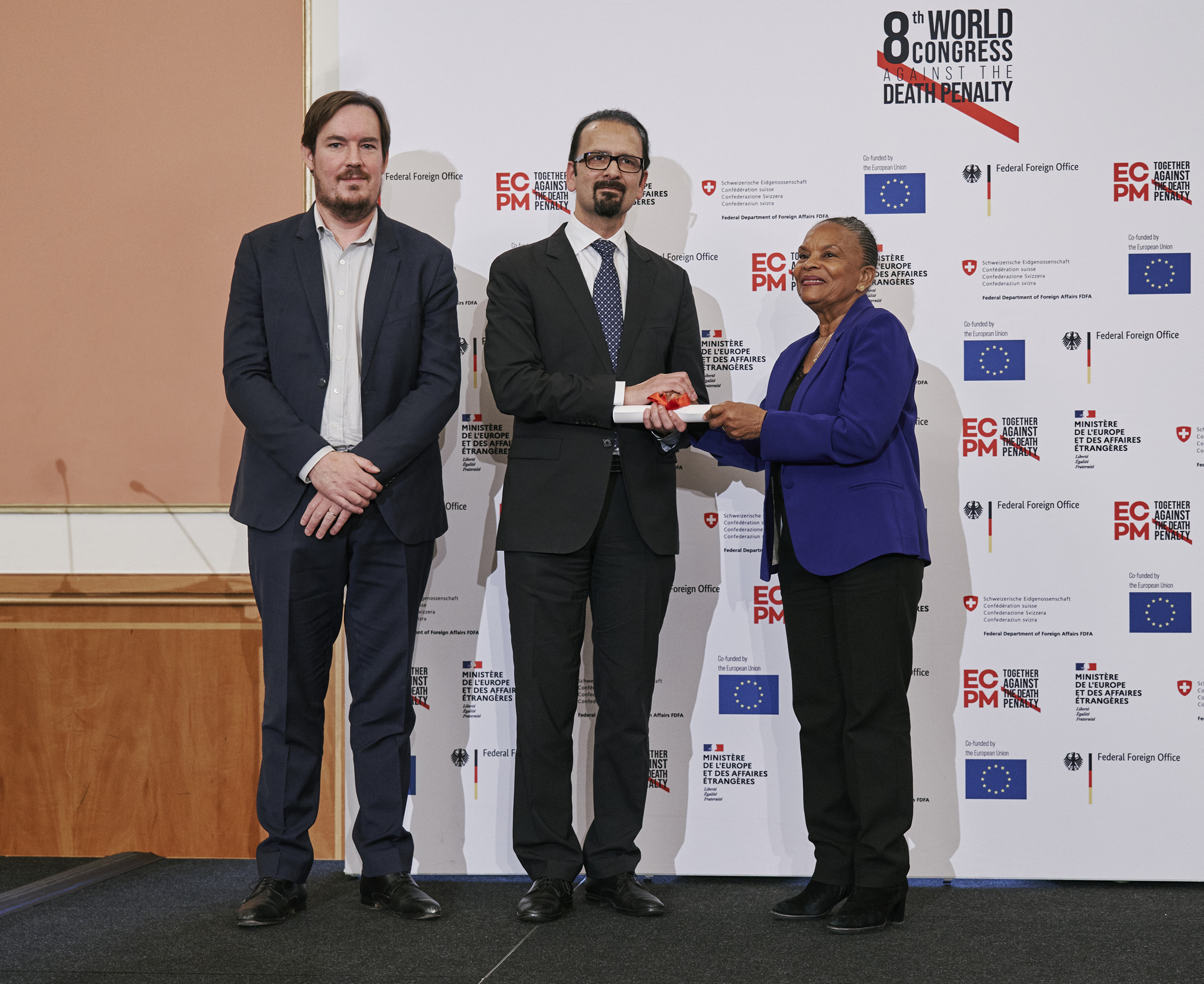
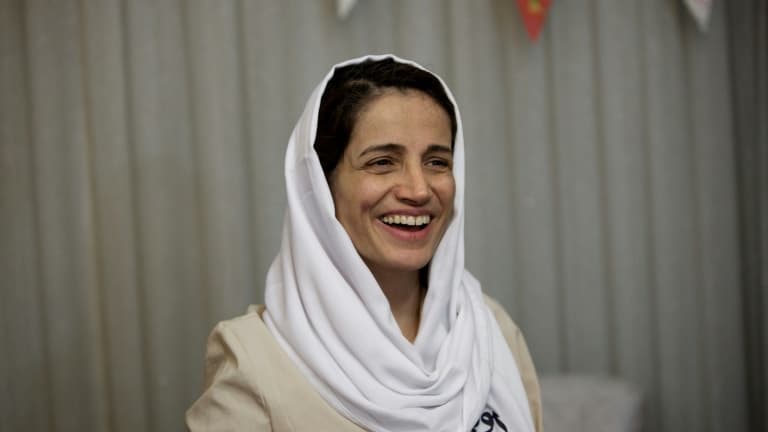
Iranian lawyer Nasrin Sotoudeh, a long-time human rights activist in her country, is the first recipient of the Robert-Badinter award. Held in Iran, still under the threat of the regime, it is the director of Iran Human Rights, Mahmood Amiry-Moghaddam who received his award, from the hands of the former French Minister of Justice, Christiane Taubira, during a ceremony held at the City Hall of the German capital. “This public award is the recognition of the abolitionist community and more broadly of the entire
international community for the work and exceptional courage of this woman committed to the
defense of human rights and the abolition of the death penalty in Iran,” said Raphael Chenuil-Hazan,
Executive Director of Ensemble contre la peine de mort (ECPM), organizer of the Congress. “More than
ever we must stand in solidarity with the Iranian people and this is what this Robert-Badinter Prize
underlines”, he concluded.
